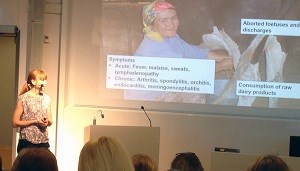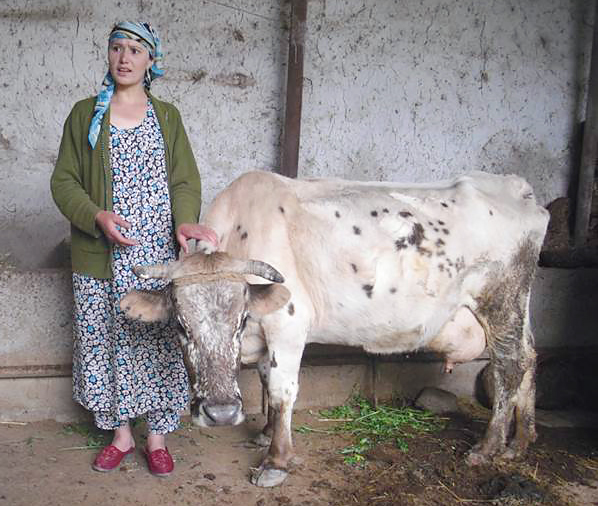Thesis on Brucella

Elisabeth Lindahl Rajala has defended her thesis"Brucella in Tajikistan - Zoonotic Risks of Urbanized Livestock in a Low-Income Country"
Brucellosis is one of the most common and economically important zoonoses globally and Central Asia represents an area with high incidence among humans and livestock. This thesis aims to assess the occurrence of Brucella among livestock in an urban and peri-urban area of Dushanbe, the capital of Tajikistan, and to elucidate how farmers understand and respond to this zoonosis.
The results shows that Brucella is widespread among the livestock and this might constitute a serious risk to public health and cause significant economic losses. Furthermore, Brucella DNA was commonly detected in cow milk by real-time PCR and there was a discrepancy between serology and PCR results. This suggests that implementing complementary diagnostic strategies to detect false serological negative individuals might be warranted in Brucella control programmes. Further characterization of the Brucella DNA suggests that there is a reservoir of B. abortus in the cattle population and a spillover of B. melitensis from small ruminants to cattle.
A knowledge, attitudes and practice study targeting farmers revealed poor knowledge of brucellosis and several high-risk behaviours, such as consumption of unpasteurized dairy products and not wearing protective clothing when handling potentially infectious materials like aborted foetuses and discharges. Poor knowledge, several high-risk behaviours and a willingness to learn more provide the rationale for developing campaigns to raise awareness of brucellosis and its associated risks among farmers in a future control programme.
